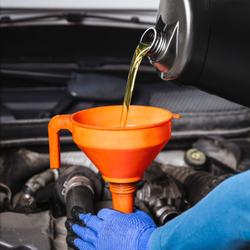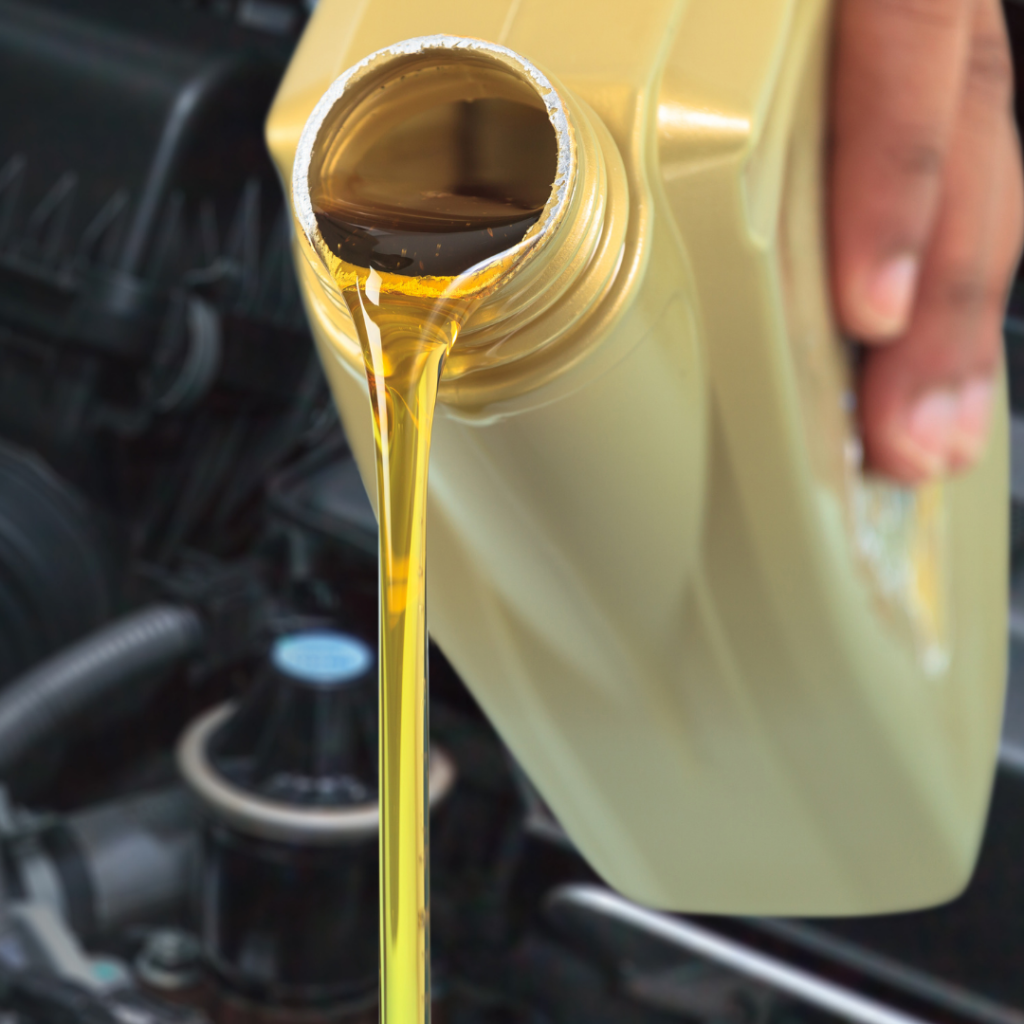When it comes to car maintenance, regular oil changes are one of the most important services you can give your vehicle. But have you ever wondered what your car’s engine oil actually does? At Bruno Automotive, we believe an informed driver is a better driver — so here’s a simple explanation of why engine oil matters and how it affects your car’s performance.
The Role of Engine Oil in Your Car
Your vehicle’s engine oil isn’t just there to lubricate parts. It performs several essential functions that keep your engine running smoothly and efficiently:

Lubrication
Engine oil reduces friction between moving parts like pistons, crankshafts, and camshafts. Without proper lubrication, metal components would suffer from rapid wear and costly damage.

Cleaning
Engine oil picks up dirt, debris, and tiny metal shavings from engine parts. These contaminants are trapped by your oil filter, keeping your engine cleaner and extending its lifespan.

Corrision Protection
Modern engine oils contain additives that help prevent rust and corrosion inside your engine. This is especially important in varying driving conditions and climates.

Cooling
As it moves through your engine, oil carries heat away from hot areas like combustion chambers and bearings. This helps regulate engine temperature and prevents overheating.
Why Oil Grade Matters
You’ve probably noticed labels like 5W-30 or 0W-20 on oil containers. These numbers indicate the oil’s viscosity grade, or how thick or thin the oil is at certain temperatures.
-
The first number (with the W) stands for how the oil flows at cold temperatures. A lower number means it stays thinner in cold weather, helping your car start more easily.
-
The second number represents the oil’s thickness at the engine’s operating temperature. A higher number means the oil remains thicker as the engine heats up, offering better protection under high-heat conditions.
Pro Tip: Always follow your manufacturer’s recommended oil grade — it’s tailored to your engine’s specific needs.

Common Engine Oil Grades:
0W-20
Thin, fuel-efficient, ideal for newer engines and cold climates.
5W-30
Versatile, suitable for a wide range of vehicles and conditions.
10W-30
Thicker at start-up, typically used in older engines or warmer climates.
When Should You Change Your Oil?
While it depends on your vehicle and driving habits, most modern vehicles require an oil change every 5,000 to 8,000 kilometers, or at least twice a year. Delaying oil changes can lead to:
- Sluggish engine performance
- Higher fuel consumption
- Engine temperature gauge is fluctuating or showing high heat
- Increased engine wear

Book Your Oil Change at Bruno Automotive
If it’s time for your next oil change, trust Bruno Automotive’s expert technicians to keep your car running at its best. We’ll help you choose the right oil grade and ensure your vehicle gets the care it deserves.
Contact us today to schedule your oil service appointment!
Book your appointment now or call us today 604.986 7975!

